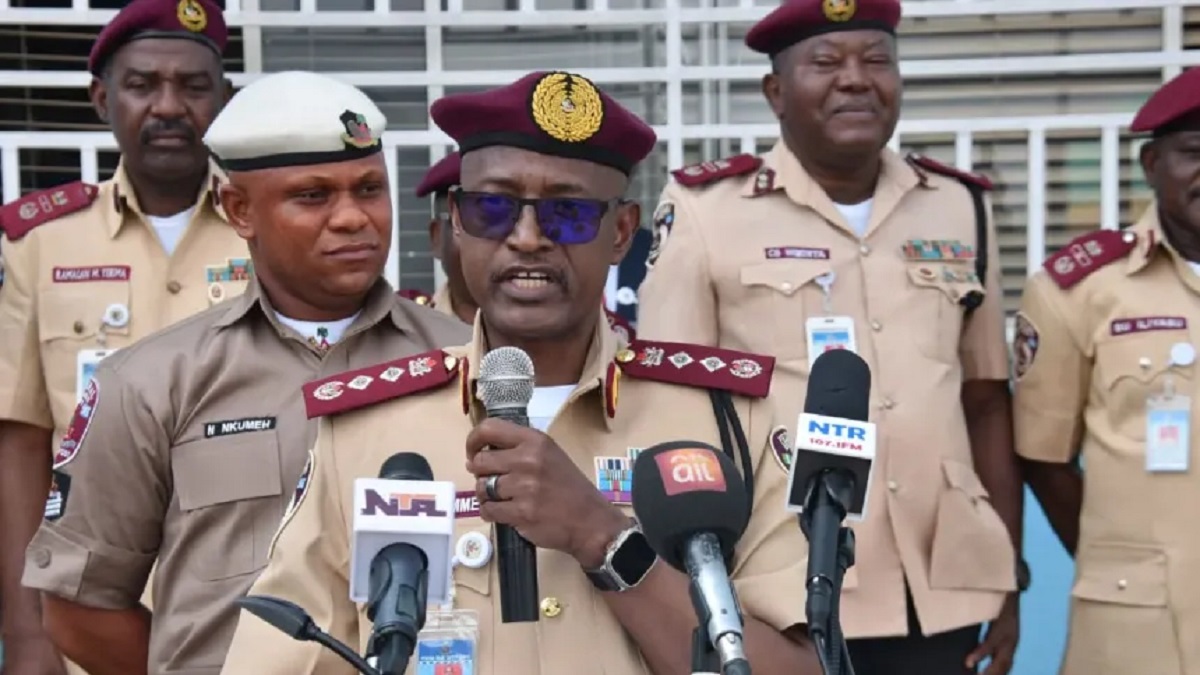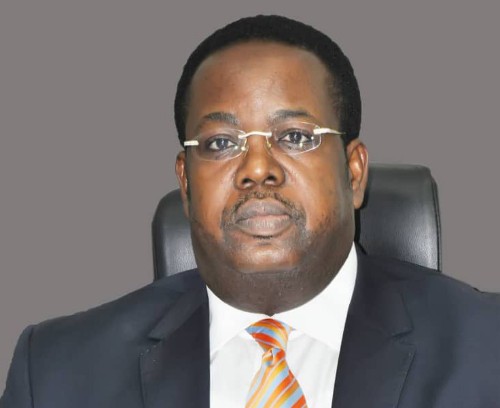The Corps Marshal of the Federal Road Safety Corps, Shehu Mohammed, has expressed deep concern over increasing incidents of misconduct, bribery, drug use, and other unethical behavior among staff, warning that such issues could damage public confidence and harm the credibility of the agency.
While addressing officers during the 2025 Half-Year Strategy Session in Abuja on Wednesday, Mohammed issued a strong call to action, urging leaders within the agency to tackle emerging behavioral problems and enforce discipline at all levels.
The theme of this year’s meeting was “Driving Change from Within: Reinforcing Integrity, Accountability, and Performance.”
He noted that recent reports have shown problems in enforcement activities due to unprofessional behavior during patrols, growing cases of misconduct, corruption, weak oversight from commanders, truancy, drug-related issues, and disrespectful treatment of road users.
These challenges, he explained, are hindering internal control and negatively impacting how well the corps performs. He added that they have also raised major concerns among citizens who expect the corps to fulfill its responsibilities effectively.
Mohammed stressed that leaders must be accountable for how their personnel behave and cautioned that failing to act could damage the agency’s integrity.
He directed that commanding officers should identify troubling behaviors, uncover the causes, and apply appropriate disciplinary measures to maintain order and public trust.
Pushing for a shift in culture within the corps, he said there is a need to reinforce leadership responsibilities and ensure proper command structures to restore order and discipline.
He emphasized the need to deal with the tendency for compromise and tackle the moral decline within the corps, which he said is damaging both its integrity and public image.
He encouraged officers to recommit themselves to ethics and responsibility, and emphasized that recognizing good performance and penalizing poor conduct must become a standard practice in the corps.
Mohammed said it was important to take firm steps against truancy, lack of enthusiasm, and abandoning duties, while rewarding productivity and accountability as a way to boost staff motivation.
Due to reduced financial support, he urged operational leaders to think creatively about how to keep their work effective despite limited resources.
He also called on commanders to build strategic partnerships, particularly with state governments, to support vital FRSC operations.
Despite internal struggles, he said the agency has earned international recognition. Nigeria recently received the Kofi Annan Road Safety Award for Best in Road Safety Management in Africa and was selected to host the permanent office of the African Association of Road Safety Lead Agencies.
Mohammed attributed this progress to the hard work of FRSC personnel and the support of the federal government, adding that the achievements have positioned FRSC as a leading road safety agency on the continent.
To boost the agency’s legal authority, he said the FRSC Amendment Bill, which recently passed in the House of Representatives, is now waiting for Senate approval. The proposed law includes changing the agency’s name and expanding its responsibilities.
He explained that the current FRSC law from 2007 will be updated to become the Nigeria Road Safety Commission Act 2024.
He added that under the new law, the Federal Road Safety Corps will become the Nigeria Road Safety Commission, its authority will cover all public roads, senior officers’ salaries will be consolidated, and a special armed unit will be created within the commission.
He mentioned that the corps recently completed a round of promotions, raising three Assistant Corps Marshals to Deputy Corps Marshals, 18 Corps Commanders to ACMs, and promoting more than 1,200 other officers.
He said management is working hard to motivate staff and create conditions that encourage better performance.
He expressed hope that both officers and rank-and-file members would commit themselves to providing quality service.
To strengthen partnerships between agencies, he said the FRSC signed a Memorandum of Understanding with the Nigerian Safety Investigation Bureau to broaden safety efforts across all transportation sectors.
Mohammed noted that the agreement with NSIB aims to improve safety beyond aviation, extending to roads and railways, with both agencies working together to make transportation safer for the public.
NSIB’s Director General, Captain Alex Badeh Jr., described the collaboration as important in helping to ensure safety in transportation.
He said their role was to provide recommendations that would enable the FRSC to carry out its responsibilities more effectively and protect lives.
He also commended the FRSC for recent improvements in its enforcement and response strategies.
Senator George Akume, Secretary to the Government of the Federation, who officially opened the session, praised the FRSC for its continued efforts despite budget and resource challenges.
Referring to accident figures between January and May 2025, which showed 2,406 deaths and more than 33,000 injuries, Akume (represented by Sanusi Danjuma) called for stronger enforcement, education, and inter-agency collaboration.
He said reviewing past performance helps highlight strengths and weaknesses, and assured the corps that government will keep supporting its programmes to achieve the goal of zero road traffic deaths.
He concluded by applauding the corps’ use of digital solutions such as the FRSC mobile app and the National Crash Information System, which he said have helped improve real-time tracking and policy development.

 BIG STORY5 days ago
BIG STORY5 days ago
 BIG STORY5 days ago
BIG STORY5 days ago
 BIG STORY2 days ago
BIG STORY2 days ago
 BIG STORY5 days ago
BIG STORY5 days ago
 BIG STORY5 days ago
BIG STORY5 days ago
 BIG STORY5 days ago
BIG STORY5 days ago
 BIG STORY2 days ago
BIG STORY2 days ago
 BIG STORY4 days ago
BIG STORY4 days ago





















